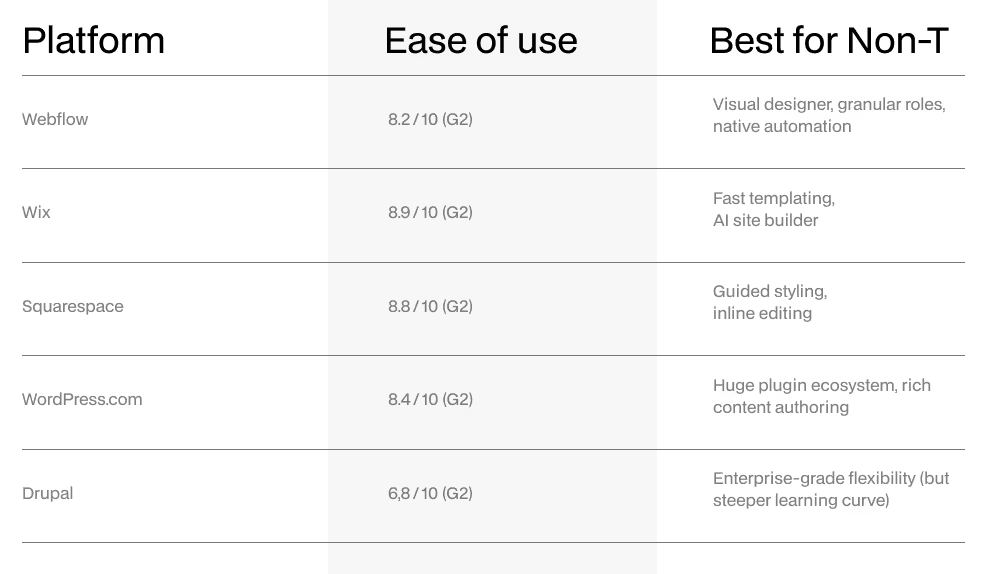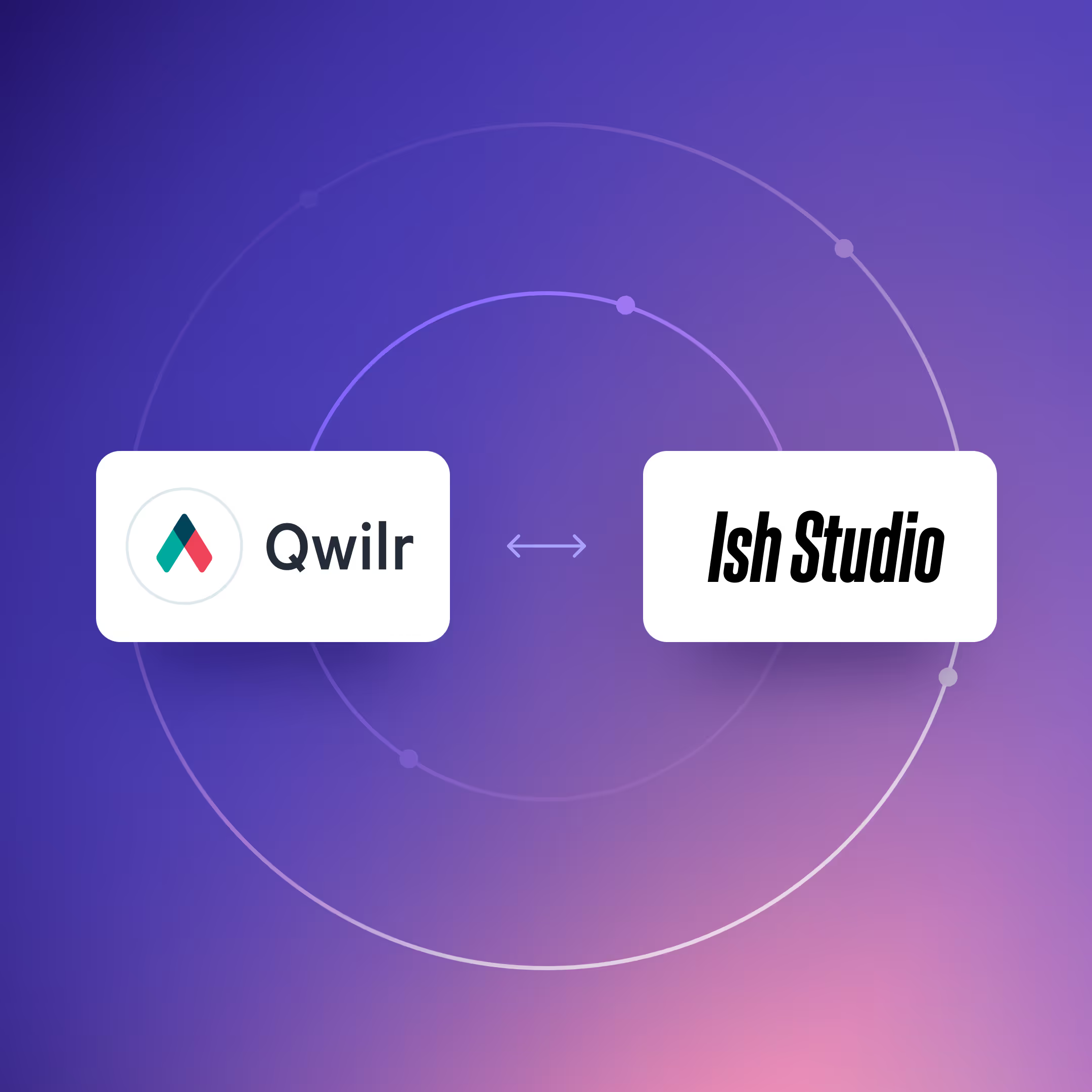Breaking down website management for non technical staff
Modern marketing runs on speed, but most websites still run on code. The result? Non‑technical teams feel stuck every time content needs to change. This guide shows how to simplify website management for non‑technical teams so updates ship in hours, not weeks. Your website should move as fast as your market. Yet many marketing and comms teams still wait days or weeks for simple edits. Why? Because the stack was built for developers, not doers. Below, we unpack how to simplify website management for non‑technical teams and turn the site from bottleneck to growth engine.
Why website management became so complicated
Non‑technical marketers usually describe website management with one word: frustrating.
Here’s why:
- Technical Jargon: Even simple tasks get buried under mentions of SSL, DNS, or Git.
- Complex Interfaces: Legacy dashboards look like cockpit controls.
- Developer Dependencies: Every tweak queues a ticket, then waits for sprint capacity.
- Tool Overload: CMS, DAM, analytics, forms, and marketing automation rarely speak to each other.
The cost is real. A global study shows marketers spend over 60 % of their week chasing information or feedback instead of creating value, only 28 % of their time goes to core work. Another review found “technical implementation” to be the single biggest brake on B2B campaign momentum.
Start with a user‑friendly CMS
Technology will not solve culture on its own, but the wrong platform locks in friction. A user‑friendly CMS gives non‑technical editors safe, visual control while keeping code quality intact. Non‑technical teams move twice as fast because workflows collapse: design, build, review, and publish all happen in one place. Developers focus on high‑value work; marketers own day‑to‑day changes. The result is a website that finally keeps pace with the business, and a team that never waits for code again.

What to look for
- True visual editing – drag‑and‑drop that writes clean code behind the scenes.
- Role‑based permissions – creators edit content, not layout; approvers publish.
- Scalability & integrations – native hooks into CRM, analytics, and automation tools keep the stack lean.
Choosing right here is the foundation of a digital strategy for non‑technical teams and the gateway to scalable web solutions for businesses.
Break the content bottleneck
Streamline approvals
Map a simple path: Draft → Review → Publish. Document it, time‑box feedback to 48 hours, and make status visible inside the CMS.
Momentum returns when everyone knows the next step.
Templatise the routine
Design once, reuse forever. Lock brand elements inside ready‑to‑publish layouts for blog posts, product pages, or landing pages. Editors fill the blanks; the brand stays intact. That’s how you streamline content management without adding headcount.
Automate the predictable
- Scheduled publishing keeps seasonal banners and product launches on time—no midnight log‑ins.
- Self‑serve analytics dashboards surface traffic and conversion data in plain language, letting teams act without data‑team queues.
The right website automation tools cut manual checks, eliminate weekend deploys, and create truly agile website operations.
Equip people, not just platforms
Run internal workshops that use real site tasks, not hypothetical examples. Record them; new hires can ramp up on demand.
Nominate a website champion, someone curious, organised, and able to translate between code and content. Empower them with advanced permissions and ongoing training.
Link simplification to growth
When non‑technical teams own the website:
- Speed doubles. Campaign pages go live the same day a brief is approved.
- Costs drop. Fewer development tickets mean lower external spend.
- Lead flow improves. Fresh content and rapid testing lift conversion rates.
That’s how you simplify website updates and turn the site into a living asset instead of a static brochure.
What’s next
Simplification isn’t a one‑off project; it’s continuous optimisation. Start with a pilot section of the site, prove the gain, then extend templates, automation, and training across properties.
Talk to us
Are web bottlenecks holding back your next launch? As Webflow Premium Partners, we help B2B organisations replace complexity with clarity, combining intuitive systems and hands‑on training so your marketing team can move at market speed.
Let’s make your website matter. → Contact Ish Studio
Want to know more about Webflow? Link to Webflow here










